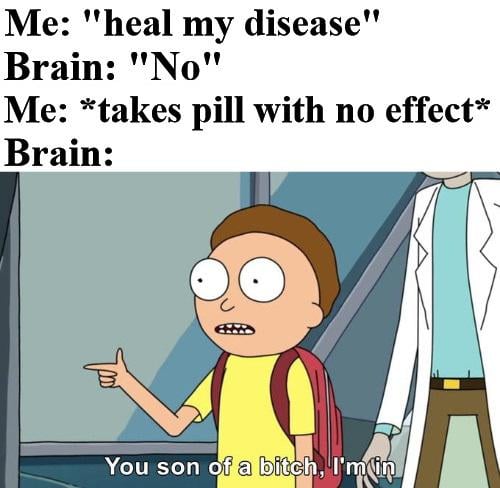this post was submitted on 23 Jan 2024
802 points (97.4% liked)
memes
9312 readers
1612 users here now
Community rules
1. Be civil
No trolling, bigotry or other insulting / annoying behaviour
2. No politics
This is non-politics community. For political memes please go to [email protected]
3. No recent reposts
Check for reposts when posting a meme, you can only repost after 1 month
4. No bots
No bots without the express approval of the mods or the admins
5. No Spam/Ads
No advertisements or spam. This is an instance rule and the only way to live.
Sister communities
- [email protected] : Star Trek memes, chat and shitposts
- [email protected] : Lemmy Shitposts, anything and everything goes.
- [email protected] : Linux themed memes
- [email protected] : for those who love comic stories.
founded 1 year ago
MODERATORS
you are viewing a single comment's thread
view the rest of the comments
view the rest of the comments

Weird question. Do you know what would happen if you gave two groups a painkiller, told one group that it should help and told the other that it shouldn't work (or that it was a placebo)? I'm curious if the drug would still work as well if the patient was told it isn't supposed to.
I'd google it, but I have no idea what keywords to use lol.
Yep, look up the nocebo effect. It's exactly that.
It's not so common being an issue like the example describes irl for medication as generally people who don't think something will work simply don't take it, so it becomes more a compliance issue, but certainly is a concern for eg physical treatments - patients are more likely to report pain during a procedure if they go into it expecting it to be painful. Also mentioning side effects of medication makes patients more likely to experience them.
That's super interesting, thank you!